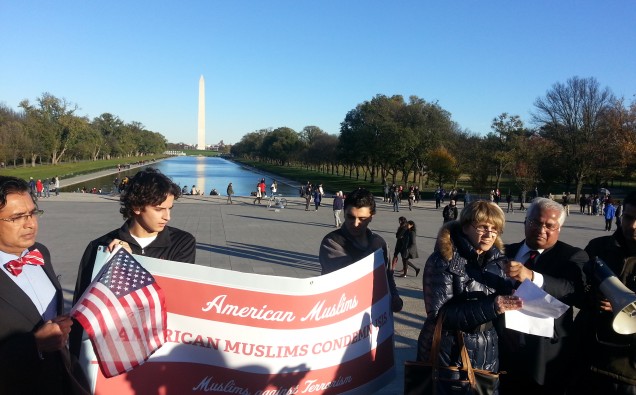
Under political spotlight throughout the election campaign, American Muslims have entered the New Year 2017 with a mix of fears and hopes.
Fears stem from recent rise in hate speech and attacks while hopes arise from newfound political activism.
During the 2016 election season, Muslims tried to increase their representation in national processes, and remove negative perceptions that arose from media portrayals each time militant organizations using their faith, Islam, carried out terrorist attacks.
The backlash to such attacks included irresponsible statements by some politicians, and open display of bigotry as well as violent attacks against Muslims, particularly women wearing the hijab. That makes even students unsafe at some places.
But where should they begin the task of outreach? There is no better place to begin in the neighborhood.
Some members of community have already started reaching out to diverse and mainstream populations, urging Muslims to work in the mainstream society.
For example, Mohammad Nadeem, at a very young age of 21 he is the director in Muslim Observer states that. “If we don’t tell our stories than someone is going to do for us,” he said, according to a report.
Rashida Talib, the first Muslim American to have served as a State legislature in Michigan, said that she is raising two kids to become activists telling them that being a Muslim means giving back to community.
In Washington, DC Metro area some Muslim institutions and mosques are working on community outreach, and also building relations with the law enforcement.
Last April, the FBI gave award to All Dulles Area Muslim Society (ADAMS) Center for its efforts toward building partnership between the Muslim community and the law enforcement. ADAMS Center works tirelessly for the community outreach.
Recently, the Center also started a free clinic for the people who could not afford medical insurance.
Some other Muslim associations are also working to integrate Muslims to other communities, such as Center for Pluralism (CFP). This center is run by Dr. Mike Ghouse, who is also writer and interfaith leader.
“I am committed to building cohesive societies and offers pluralistic solutions on issues of the day,” says Ghouse, who, also writes on human rights, foreign policy and motivational subject.
Similarly, Montgomery County Muslim Foundation, headed by Tufail Ahmad, has been feeding the hungry and meeting needs of the underprivileged.
In several other areas also, Muslim Centers, mosques, restaurants and other Muslim organizations have been working to feed the homeless in America.
A Washington DC restaurant, Sakina Halal Grill, previously Mayur Kabab, feeds daily homeless people three meals a day. Qazi Mannan, the owner, has been praised for serving the homeless.
Masjid-al-Islam mosque in Southeast Dallas, serves 15,000 free meals per year, mostly to non-Muslims. In Birmingham, Alabama the central mosque ran a soup kitchen for the homeless on Christmas Day.
While all these are good signs, Muslims in the United States have much work to do in terms of outreach at community and political levels in the time ahead, as the United States transitions to a new Donald Trump Administration.
Muslims particularly need to expand their interaction in communities and neighborhoods away from diverse cities, where they have a small presence, and where the only time mainstream communities talk about Muslims comes at a wrong time –when militant attacks take place

















Well written. Muslims will certainly have to increase their interactions, as a new challenging era approaches.
Very well written Nuzaira…..